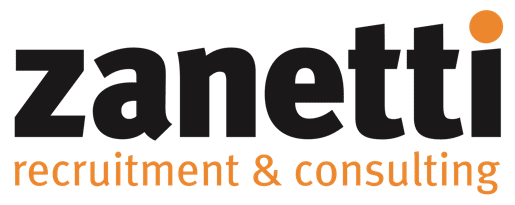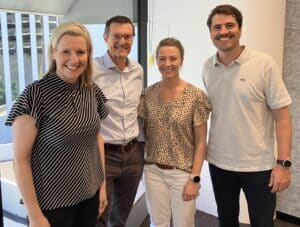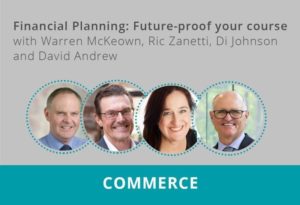Want to learn from a successful career transition to financial planning?
I recently sat with someone who chose to transition from another industry and pursue a career in financial planning. Having been successful in running businesses for 11 years, he started a journey of investigation, made the decision to complete the Advanced Diploma of Financial Services and began networking for a role in the industry. He has now been in a financial planning role for 12 months and shared some of his learning with me.
Some initial findings from the industry
There is no doubt that graduate programs and the creation of successful career transition pathways to the financial planning industry are necessary for sustainability and growth. It’s also one of the drivers of the industry becoming a profession.
The recent analysis completed by Griffith University and Zanetti Recruitment & Consulting has identified that 85.1% of those surveyed will grow their staff numbers in the next five years with 64.5% indicating they would seek graduates for growth positions.
Financial Planning SME’s overwhelmingly reported they want a structured graduate recruitment and development pathway within the industry and are looking for guidance in this area.
Industry associations and government are focused on transforming financial planning into a profession and the recent PJC report recommendations propose continuous higher education and minimum standards.
Some of the learning he shared with me
There is no doubt this individual was driven to succeed, had existing business acumen, clear engagement skills, a demonstrated ability to learn and a genuine interest in helping others. Arguably, to transition directly to advice from another profession or industry, these traits are necessary for a successful career as a planner.
So what did he share?
- You need to work smart but you also need to work hard — He found that there was a lot to learn. Even though his engagement with people was solid, a heavily regulated compliant process that delivered an outcome and to influence the recommendation was new to him. New business partnerships to manage, application of technical knowledge in the real world and much more meant there is a lot to do.
- He moved from checklist in client interviews to intuitive thinking — When he first started engaging in client interviews, following a process and ticking the boxes was imperative to his success both in delivering compliant advice and ensuring he didn’t overlook any matter for the client. After about 5 months client engagement, he found due process came more naturally. He was more relaxed and confident in interviews and this also had an impact on how clients engaged. Given more experience and time, he became more relaxed and confident.
- He got out of his comfort zone — He would never have succeeded if he hadn’t made the decision to pursue a career change. But once in the role, he chose to get out of his comfort zone. Once the foundation skills and knowledge were in place, he was given the guidance and freedom to engage in a controlled environment. And he embraced it, with both hands.
- When placed in a position where you see challenges, learn also from what not to do, not just from what you are taught “to do” — He made a point of reflecting on both the good experiences and the challenging ones. I suppose the old cliche stands true….learn from your mistakes.
- Take Action — If leadership is waning, find other people that you can gain information and learn from. Don’t use it as an excuse for failure. He believes that success is no-one’s doing other than your own.
- Continuous study is important — Although it seems that the government will continue to legislate minimum educational standards, he has chosen that minimum competency in education to deliver advice is only the beginning. He has a goal for CFP and/or Masters. But he also has an appetite for non structured learning in everything he does on a day to day basis.
- Clear on goals and path to success — There will be lots of setbacks, self doubt at times and people who think you won’t succeed. Have a clear goal and remain focused on it.
- Your partner/spouse must be on board — His journey started with everyone on the bus. In other words, it was a joint decision with his spouse. There would be longer hours and less household income to start. She is fully supportive of his vision.
There were other messages he shared including keeping the client’s best interest at the center of everything you do and you must believe in your value or it’s all over.
There is a lot to learn from this bloke and there’s a lot to learn from many others if we ask the right questions and listen





